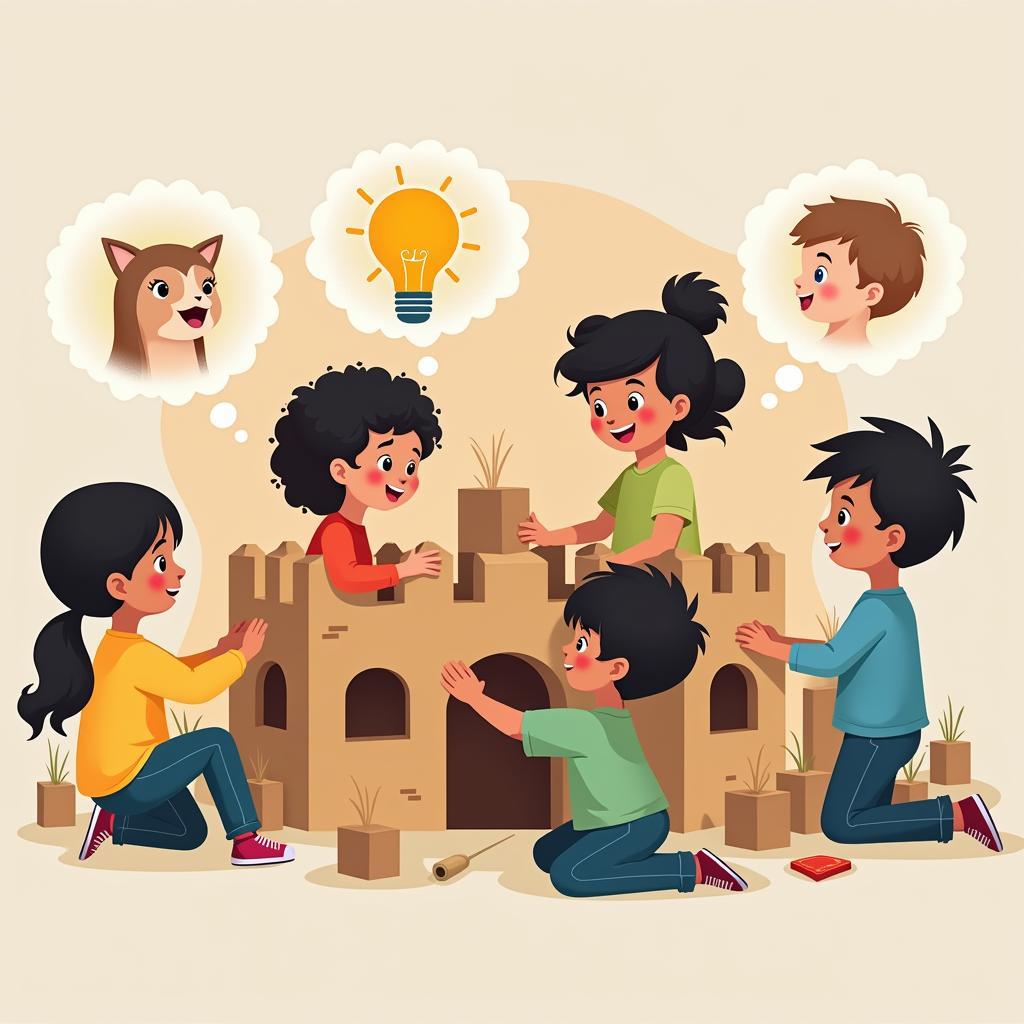Initiative vs. guilt is a crucial stage in a child’s psychosocial development, typically occurring between the ages of three and five. This phase, as described by Erik Erikson, shapes a child’s sense of purpose, ambition, and ability to take charge. Understanding this stage is vital for parents and educators to foster a healthy sense of initiative in children.
What is Initiative vs. Guilt?
Erikson’s theory posits that children at this age begin to assert their power and control over the world through play and social interaction. They start to plan activities, make up games, and initiate activities with others. When encouraged and supported in these endeavors, children develop a sense of initiative, feeling secure in their ability to lead and make decisions. However, if criticized, controlled excessively, or made to feel inadequate, children may develop feelings of guilt.
The Importance of Play in Initiative vs. Guilt
Play is essential during this stage. It allows children to explore their environment, test their limits, and develop a sense of independence. Through play, children learn to take risks, make mistakes, and problem-solve without fear of severe repercussions. This fosters their initiative and allows them to develop a healthy sense of self-efficacy.
 Initiative vs. Guilt in Play
Initiative vs. Guilt in Play
Nurturing Initiative in Children
Parents and educators play a significant role in nurturing initiative. Providing opportunities for children to make choices, offering encouragement and support, and focusing on effort rather than outcome are crucial. Allowing children to take on age-appropriate responsibilities, such as setting the table or helping with chores, can also boost their sense of initiative.
Practical Tips for Parents and Educators
- Encourage exploration: Create a safe and stimulating environment where children can explore and experiment.
- Provide choices: Offer choices within reasonable limits to allow children to feel in control.
- Support their ideas: Listen to their ideas and encourage them to pursue their interests.
- Focus on effort, not perfection: Praise their effort and perseverance rather than solely focusing on the outcome.
- Avoid excessive criticism: Excessive criticism can lead to feelings of guilt and discourage initiative.
The Consequences of Guilt
When children consistently experience disapproval or are made to feel inadequate, they may develop a strong sense of guilt. This can lead to a lack of self-confidence, hesitation to take risks, and a reluctance to initiate activities. They may become passive and overly dependent on others, hindering their ability to develop a sense of purpose and independence.
Recognizing Signs of Guilt in Children
- Excessive apologizing: The child apologizes frequently, even for minor mistakes.
- Fear of trying new things: The child avoids new activities or challenges due to fear of failure.
- Lack of self-confidence: The child displays low self-esteem and doubts their abilities.
- Withdrawal from social interaction: The child becomes withdrawn and avoids interacting with others.
Conclusion: Fostering a Lifelong Love of Learning
Understanding the initiative vs. guilt stage is crucial for promoting healthy child development. By fostering a supportive and encouraging environment, parents and educators can help children develop a strong sense of initiative, setting the stage for a lifelong love of learning and a confident approach to life’s challenges. Remember, nurturing initiative in children today empowers them to become the leaders and innovators of tomorrow. For further assistance, please contact us.
FAQs
- What age does the initiative vs. guilt stage typically occur? (3-5 years)
- How does play contribute to a child’s sense of initiative? (It allows them to explore, experiment, and develop independence.)
- What are some signs of guilt in a child? (Excessive apologizing, fear of trying new things, lack of self-confidence.)
- How can parents encourage initiative in their children? (Provide choices, offer encouragement, focus on effort.)
- What are the long-term consequences of unresolved guilt? (Lack of self-confidence, reluctance to take risks, passivity.)
- How can I help my child overcome feelings of guilt? (Provide support, encourage them to try again, focus on their strengths.)
- What are some examples of activities that promote initiative? (Pretend play, building projects, helping with chores.)
Suggested Further Reading
- Erikson’s Stages of Psychosocial Development
- The Importance of Play in Early Childhood
- Building Self-Confidence in Children
Khi cần hỗ trợ hãy liên hệ Số Điện Thoại: 02838172459, Email: [email protected] Hoặc đến địa chỉ: 596 Đ. Hậu Giang, P.12, Quận 6, Hồ Chí Minh 70000, Việt Nam. Chúng tôi có đội ngũ chăm sóc khách hàng 24/7.